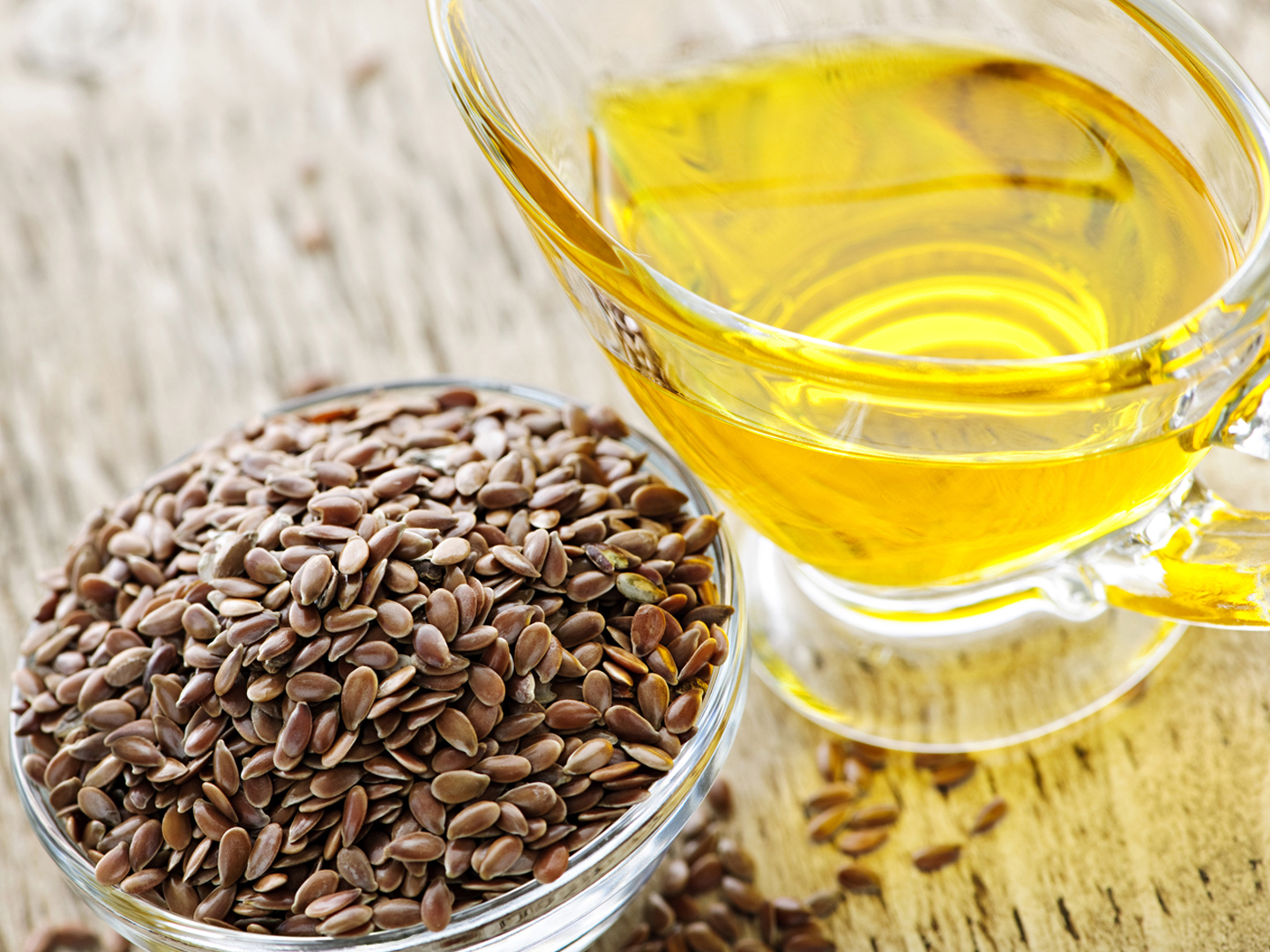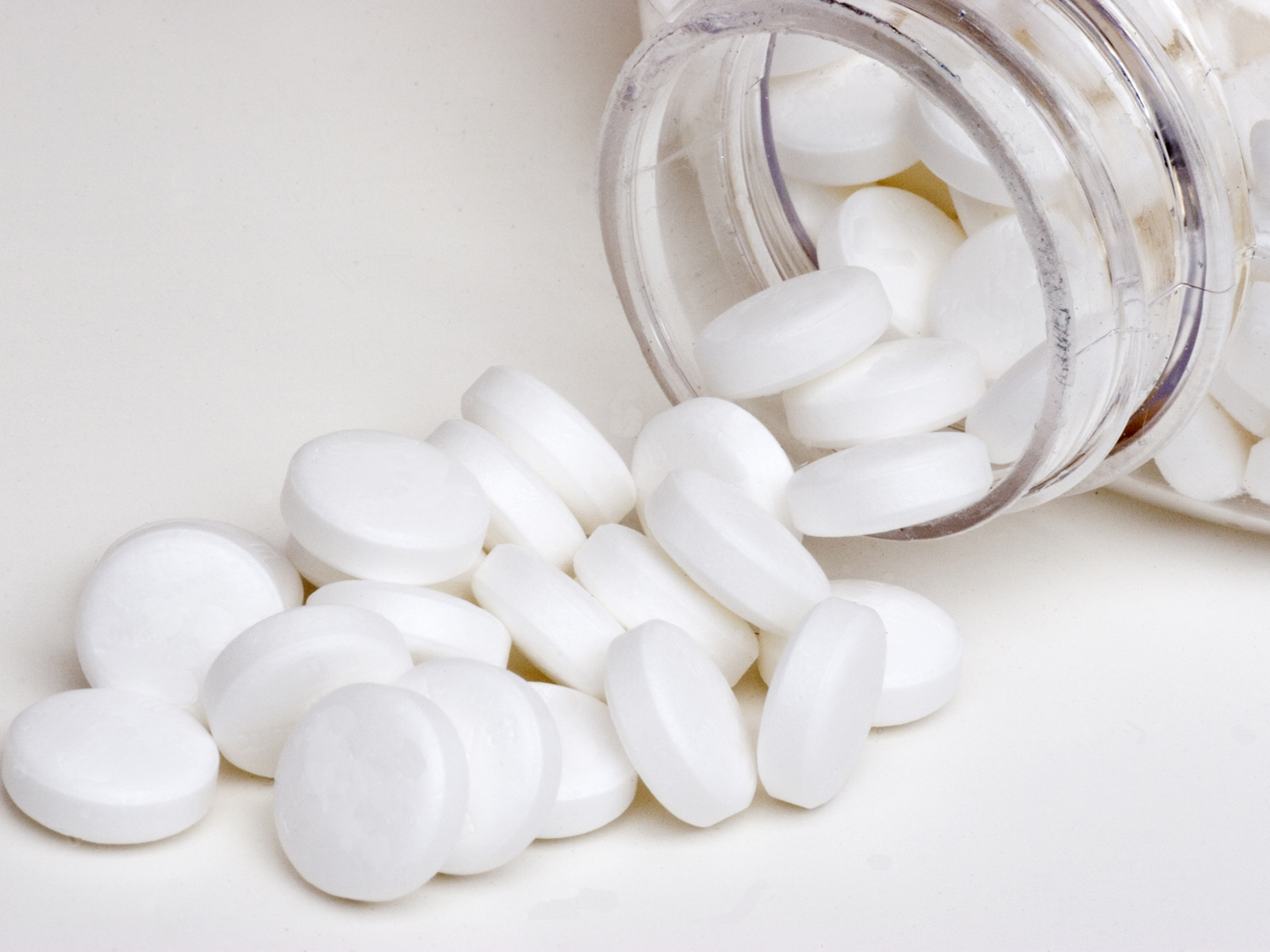A Flaxseed Oil Risk for Men?
Several years ago you indicated that you do not recommend flaxseed oil for men due to potential for prostate tumor growth. Does this research still hold?
Andrew Weil, M.D. | October 4, 2006

Freshly ground flaxseeds are an excellent source of alpha-linolenic acid (ALA), a type of omega-3 fatty acid. The human body needs long-chain omega-3s (EPA and DHA), which are found in salmon and other oily, cold water fish. It can make them from ALA, but the conversion is not efficient and is inhibited further if the diet is rich in the omega-6 fatty acids, which are found in most vegetable oils and processed food.
As you know, omega-3s are associated with reduced risks of heart attacks and stroke and also may decrease the risk of macular degeneration (a leading cause of age-related blindness) as well as breast, prostate and colon cancers. If you don’t like fish (and don’t eat the recommended three servings of cold water fish per week), ground flaxseeds can help fill the gap. I recommend buying whole flaxseeds, storing them in the refrigerator and grinding a half-cup at a time in a coffee grinder. You can then sprinkle a tablespoon or two over salads, cereals, or potatoes or add them to baked goods such as breads and muffins.
In addition to providing some omega-3 fatty acids, flaxseeds are an excellent source of fiber, which helps prevent constipation, and of lignans, compounds with beneficial estrogen-like effects that offer protection against breast and prostate cancer.
I often recommend supplementing the diet with fish oil as an omega-3 source, but I’m less enthusiastic about flaxseed oil. One tablespoon daily will give you seven to eight grams of ALA, but little of that will be converted to EPA and DHA. Flaxseed oil spoils easily so be sure to keep it refrigerated (it should be refrigerated when you buy it). If you notice that it tastes like oil paint, throw it away. Rancidity is oxidation, and oxidized fats are toxic.
Although flaxseed oil seems to be safe for women, I still haven’t seen any data showing that it is safe for men. In October 2004, Nutrition Journal published an analysis of nutrition and cancer. One meta-analysis included in that publication reviewed nine studies that revealed an association between flaxseed oil intake or high blood levels of alpha-linolenic acid and increased risk of prostate cancer. The author speculated that the lignans in flaxseed are a major component of its anti-cancer effects and that the lack of lignans in most brands of flaxseed oil may explain why flaxseed oil is not beneficial. Until we know more about the risk flaxseed oil appears to present, I recommend that men avoid it, or at least stick to brands that put the lignans back in. Flaxseeds, however, present no danger to men.
Andrew Weil, M.D.








